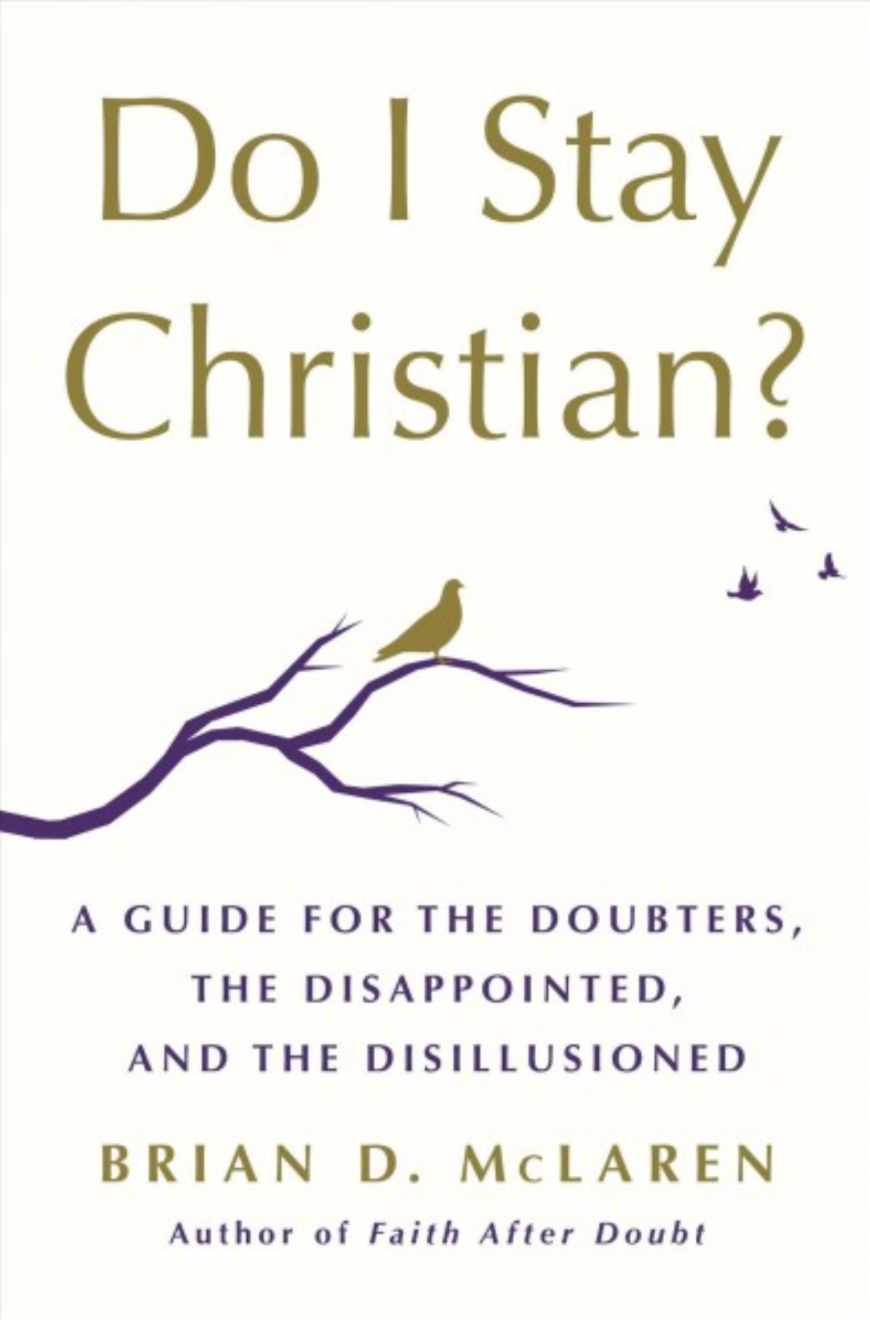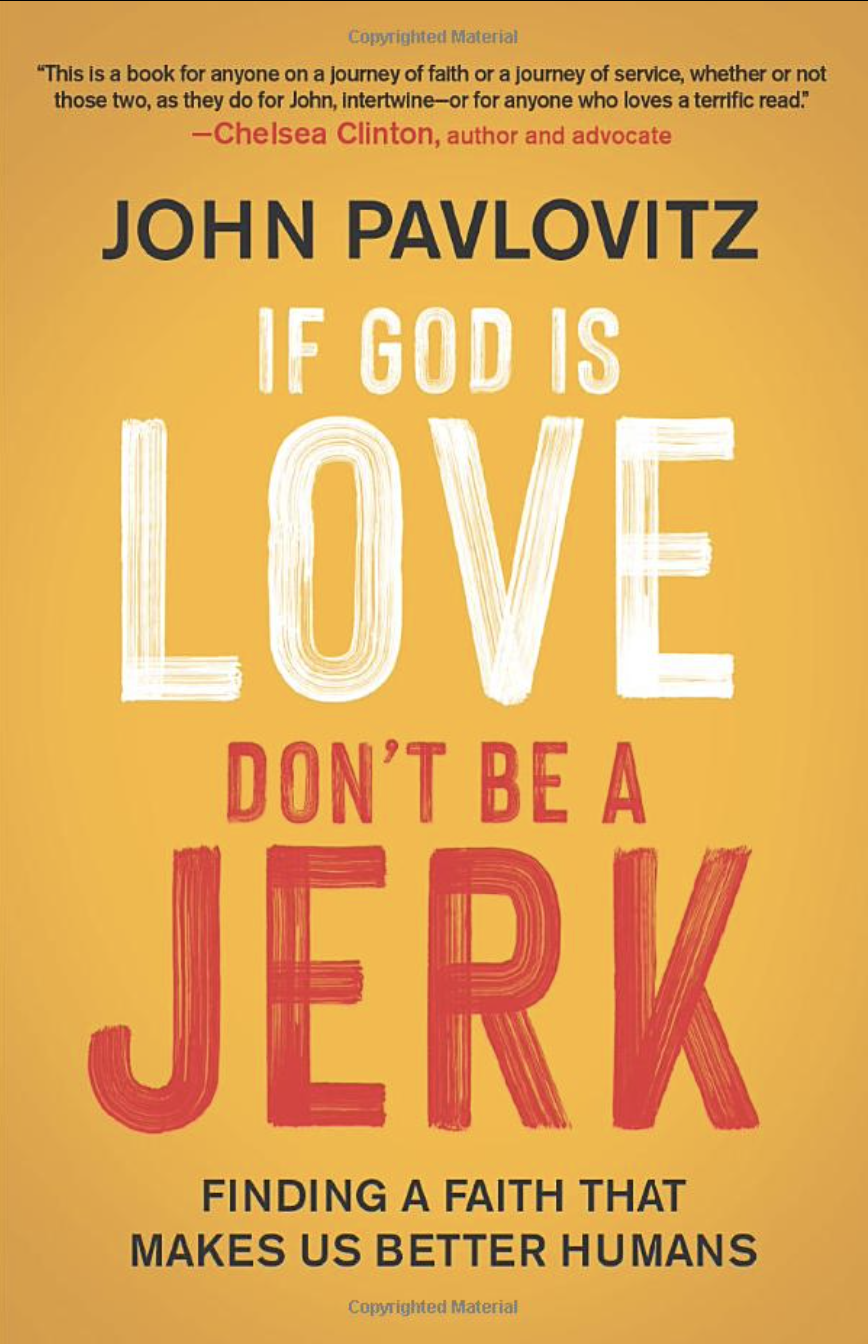This essay is in response to our “Should Auld Acquaintance Be Forgot?” writing prompt.
Like many people, I’ve been struggling for several years with what the church has come to represent to so much of the world — rigid, judgmental, intellectually barren, heartless, and clannish. As I told a friend recently, it’s really difficult to claim Christianity when so much of it looks so ugly.
Yet, I am a Christian, and I believe the God I worship has the power to transform individuals, nations, and the world. That’s why I was delighted this year to find two books that will go a long way toward resurrecting a simple idea: God is love, and those who follow God will work to bring and expand love to the world. I’ll definitely be bringing these books into 2023 and beyond.
The first is Brian D. McLaren’s Do I Stay Christian?: A Guide for the Doubters, the Disappointed, and the Disillusioned. The second is John Pavlovitz’s If God Is Love, Don’t Be a Jerk.

Even though he is a pastor by training, McLaren doesn’t try to buffalo anyone into staying in a church, or even staying Christian. He respects people’s choices, and he’s not going to reject anyone for the choices they make.
McLaren outlines a path of spiritual growth. Most people start with a faith of simplicity, concerned with right or wrong and with pleasing authority figures. Those who move beyond step into a view of greater complexity, in which they become more pragmatic, concerned with success or failure and with being successful or seen as successful. The step beyond that is perplexity, acknowledging bias and mistakes, facing inconvenient truths, and often being aloof or suspicious. The final step, harmony, focuses on inclusion and transcendence, being compassionate, and seeking justice and the common good.
Let people love who they love . . . allow people to believe in the God they desire, or no God at all. Be kind to people, because every single person you share this planet with right now is going to die. Help people find peace and belonging and rest. Just be kind.
Like McLaren, Pavlovitz also is a pastor by training. His book teaches a simple lesson: You can know your scripture from cover to cover, you can be an expert on your church’s doctrines, but you’ve missed the point of it all if you’re not kind. Pavlovitz’s understanding of kindness moves beyond some traditional Christian understandings. Let people love who they love, he counsels. Allow people to believe in the God they desire, or no God at all. Be kind to people, because every single person you share this planet with right now is going to die. Help people find peace and belonging and rest. Just be kind.
I’ve been coming to similar views over the course of a lifetime, and they would shock the church body I grew up in, The Lutheran Church — Missouri Synod. The denomination is known for its emphasis on “pure doctrine.” This is understandable. Martin Luther did battle with the Catholic Church for straying from the idea that salvation is a gift from God and can’t be bought. It was a war waged with words, and for him to prevail, his words had to be unassailable. As a result, Luther started a Reformation, and he is recognized as one of the most profound thinkers of the last millennium.

Sadly, though, for many Lutherans, faith became a matter of intellectual assent to the church’s doctrines. An emphasis on kindness (“good works,” in church phraseology) often is lost.
One of the major teachings of Lutheranism is that people don’t find God. God finds them. And if this is true, I’ve come to believe, then God can and will bring love to people whether they are Christian, Jewish, Muslim, any other religion, or no religion at all. Only those who close their hearts to all that is good will fail to experience the love of God.
“God was in Christ, reconciling the world to himself,” we’re told. That world, I believe, is bigger than a denomination or even Christianity at large, and Christ will find people even if they live outside the church, even if they have never heard of Christ.
My former church body, I’m sure, would call me a heretic. I may be unorthodox. One thing I’m confident of, however, is that God isn’t going to kick me away if I keep seeking him and work to further his love, even if I flunk a theology test. After all, God is love, and God and his people will be with me on this not so straight, not so narrow path. Those are things I’ll take from this year into 2023.













Member discussion